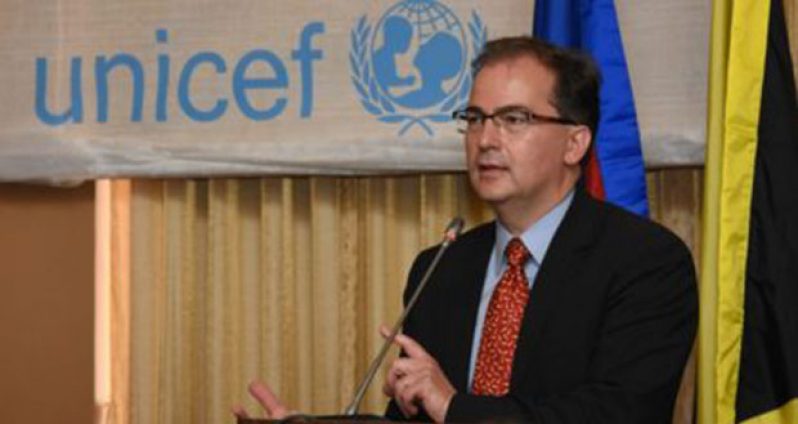GUYANA and other countries within the Region could benefit from the sharing of public documents without legislation, but only if those countries sign on to the Hague Convention, according Hague Conference Secretary-General Dr Christophe Bernasconi. At the moment, Guyana is not a party to the Hague Convention.
The October 1961 Hague Convention abolished the requirement of legislation for sharing of foreign public documents between consenting states.
But Bernasconi believes there is need for greater scrutiny in certifying public documents that are to be sent overseas.
Public documents, Bernasconi said, are those which emanate from an authority or official connected with a court or tribunal of the State and includes documents issued by an administrative, constitutional or ecclesiastical court or tribunal, such as a public prosecutor, a clerk or a process-server.
Bernasconi was at the time speaking at the Hague Convention Conference hosted for the first time in Guyana.
At the closing of this conference yesterday, Bernasconi called for countries attending, including Caribbean countries, to sign on to the Hague Convention.
Doing so would allow countries now signing on to the Convention to share Apostilles between signatory states.
An Apostille is a certification provided under The Hague Convention for authenticating documents for use in foreign countries.
The Apostille Convention, under the Hague Convention, facilitates the circulation of public documents executed in one State party to the Convention and to be produced in another State party to the Convention.
“An Apostille issued by one contracting state has to be recognised in the other, and accordingly the only effect of an Apostille is to certify the authenticity of the signature, the capacity in which the person signing the document has acted, and where appropriate, the identity of the seal or stamp which the document bears,” Bernasconi continued.
The Apostille does not relate to the content of the underlying document itself.
Public documents characterised as “Apostilles” include birth, marriage and death certificates; extracts from commercial and other registers; patents; court rulings; notarial acts and notarial attestations of signatures; and academic diplomas issued by public institutions.
Dr. Bernasconi believes that in the near future Apostilles will be issued electronically as a matter of convenience. Colombia, he said, issues approximately 6000 electronic Apostilles per day.
In 2006, the electronic Apostille Programme (e-app) was introduced by the Hague Conference in collaboration with the United States National Notary Association.
The programme is geared towards “promoting and assisting with the implementation of low-cost, operational and secure software technology for the issuance of electronic Apostilles, and the operation of electronic registers of Apostilles that can be accessed only by recipients to verify the origin.”
“The idea is that the competent authority either gets it in electronic form or scans the paper and issue electronically, and then the public document can easily be sent abroad,” the Hague Conference SG said, adding that measures must be put in place to safely transfer those documents.
Bernasconi said states would have to determine whether scanned or electronic documents are treated as original within their jurisdictions. “Where the response is no, amendments must be made to necessary legislations to ensure scanned documents are treated as originals.”
Guyana, other countries urged to be part of Hague Convention
SHARE THIS ARTICLE :
Facebook
Twitter
WhatsApp



.jpg)








